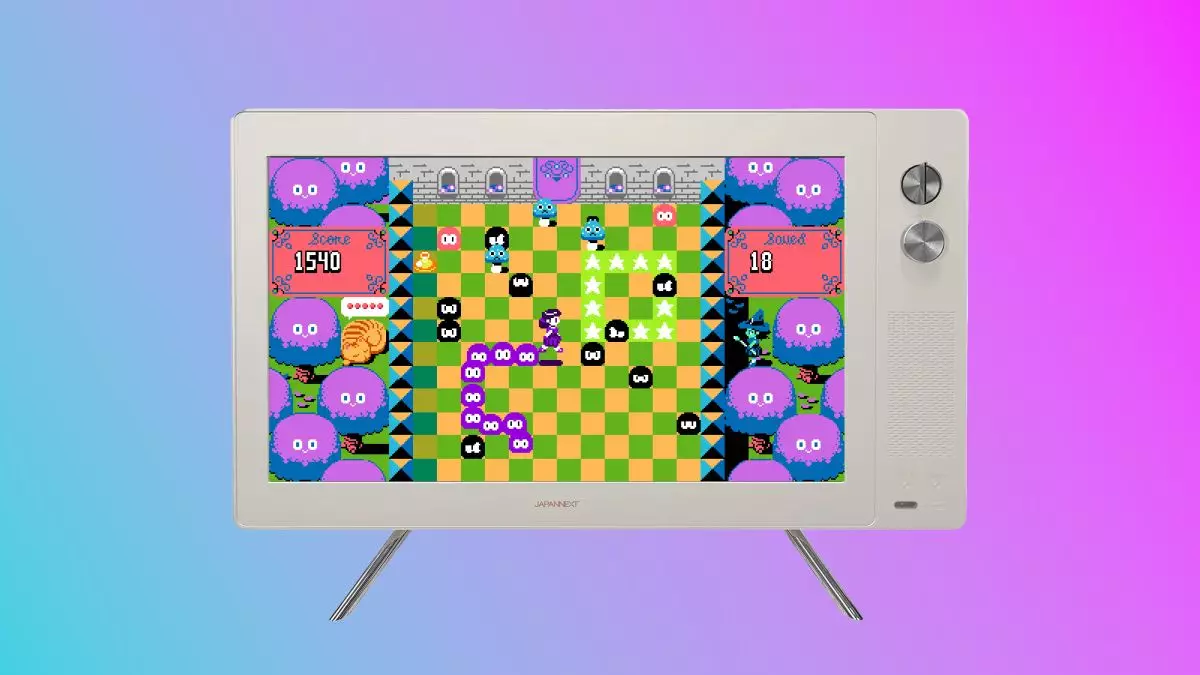In an age where nostalgia is commodified and retro aesthetics dominate product design, one can’t help but wonder: is this trend a passing fad or a genuine homage to the past? I find myself wrestling with my feelings regarding retro-inspired technology, particularly when it leans towards aesthetics rather than functionality. The JapanNext JN-V236G180F-RETRO monitor epitomizes this juxtaposition—a device that claims to blend modern capabilities with the charm of yesteryears. Despite the allure of a simpler time, I approach this monitor with an unwavering skepticism.
With a penchant for classic consoles that now languish in storage, I recognize the magnetic pull of nostalgia. However, I often question the actual substance behind products that mimic the past. The JN-V236G180F-RETRO bears a name that feels clunky and uninspired, setting a dubious tone right off the bat. When modern devices are designed to evoke memories, I believe they can quickly devolve into gimmicks—Haywire Bluetooth speakers shaped like old record players might seem quaint, but they often lack durability. The environmental implications of such disposable products also haunt my thoughts; once the novelty wears off, what remains is an expected journey to a landfill.
The JN-V236G180F-RETRO boasts a retro design that unintentionally highlights the pitfalls of such a niche marketing approach. Yes, it features a 23.6-inch 1080p display with a slim profile, starkly contrasting the bulk of CRT monitors from the past. However, its retro appeal is superficial. The manual dial for volume and brightness adjustment stands out as a quaint touch in an otherwise digital landscape, allowing users to avoid the futility of finely adjusting flat buttons. Nevertheless, does this really signify a return to the beloved past, or simply a clever marketing ploy?
Modern implementations like the monochrome mode and a refresh rate of 180Hz provide a nod to current gaming standards, yet it makes me wonder—who is this monitor truly designed for? Hardcore gamers who thrive on pixel-perfect graphics will surely find the 1080p resolution inadequate, especially in competitive gaming environments. Moreover, the mention of AMD Freesync is intriguing but hardly a game changer in a market already filled with high-performance monitors that deliver far superior image quality.
As a gaming enthusiast, sound quality is non-negotiable; I expect my devices to deliver an immersive auditory experience, and this is where the JN-V236G180F-RETRO falters significantly. With meager 5W speakers, the device struggles to provide robust sound, relegating its auditory output to an afterthought. In moments of anticipation, such as during lengthy login screens, one must either mute the experience altogether or seek external audio solutions, which somewhat undercuts the intended nostalgic experience. It’s counterproductive to embrace the aesthetics of the past while neglecting one of its fundamental aspects—rich sound quality.
Launching at around ¥30,000 (approximately $200), the monitor positions itself in a competitive market. However, consumers outside Japan may face logistical hurdles in acquiring this peculiar device, raising the question: is it worth the effort? For the nostalgic enthusiast, perhaps the charm of retro panelling and silhouette mitigates the monitor’s shortcomings. Still, for the practical user focused on performance and longevity, this former luminosity of yesteryears may barely cut the mustard.
To wrap up, while the JapanNext JN-V236G180F-RETRO monitor captures a charming slice of nostalgia, it also serves as a reminder that aesthetics without substance can lead to disappointment. I find myself questioning whether appealing to our emotions through retro designs can truly stand the test of time. In a world rapidly progressing with technology, balancing the old and new remains a challenging feat—one that the JN-V236G180F-RETRO has, unfortunately, yet to master. It appears that, for those of us striving for excellent, enduring technology, the quest continues as we sift through the kaleidoscope of nostalgia to find genuine value and innovation.

